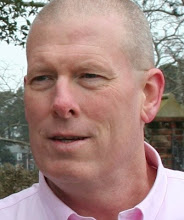The State News Article
Prof. studies economics at Mont. research institute
Resources, growth of population part of theory analysis
By LAURA COLLINS
The State News
One might wonder what Bozeman, Mont., has to offer.
But for Ross Emmett, the town, placed at the "doorstep to Yellowstone," has more than good bike-riding terrain, the James Madison College associate professor said.
Bozeman is the headquarters of the Property and Environment Research Center, or PERC, a national institute known for its size and age that focuses on economic solutions to environmental issues.
This summer, Emmett received the Julian Simon Fellowship from PERC and spent three months diving into the work of economist Thomas Robert Malthus.
"I am quite interested in market-based solutions to environmental problems," he said. "This is the group of people to lead the public discussion."
Malthus' economic theory, which stresses the relationship between population growth and resources, has been interpreted differently.
But Emmett said his research found that, in reality, a common interpretation is not necessarily correct.
"What most people think Malthus' theory is, is different than it was," he said. "They think of it as the race between tortoise and hare.
"The hare is population growth, and natural resources (the tortoise) don't grow very much," he added. "But then the hare of population growth catches up with the tortoise of natural resources."
This theory then would lead to population outgrowing the resources, which could cause disease and death, Emmett said.
But after a lot of reading, Emmett discovered this common take on the theory is only "a prelude" in Malthus' work, which is more of a conversation about societal organization.
"(Malthus) said that human beings, unlike rabbits, organize and create institutions," Emmett said. "Yes, we are biological creatures, and we do reproduce. But we use reason and human foresight to anticipate future events and organize our own personal lives and societies in ways to avoid (running out of resources)."
Emmett said he ended up arguing that institutions, such as governments, law and social conventions, are crucial to building societies. And if well-designed, they will eliminate the natural resource and human population competition.
Taking economic theories and examining their truths in the developing society is common, said Trevon Logan, assistant economics professor at The Ohio State University.
"What you have to do is teach the fundamentals, but also teach what you have learned about them," Logan said. "You can teach about Malthus' theory, but also about the parts that Malthus got wrong, all this technological growth.
"It is important to recognize the parts they got wrong. We know things in the world to be a little bit different."
MSU economics Professor Jeff Biddle said new knowledge about fundamental economic theories is important and could have an effect on future university curricula.
"Malthus is a well-known figure," Biddle said. "His simple versions of his theory are often sided to support various policy positions. Not all people often understand the subtlety of his argument, and his theory is misunderstood.
"The sort of work the James Madison professor is doing is important."
The final results of the fellowship were a seminar about Emmett's findings and an academic paper he is currently revising for publication.
Norman Graham, associate dean of James Madison College, said a similar seminar about Malthus could be held at MSU in the summer, encouraging more academic activity.
"Students and faculty should be encouraged to look at things a little differently," Graham said. "That is exactly what we should be doing. You make knowledge by examining the knowledge base of the past."
It was a lot of fun to be at PERC for the summer and write about something he has wanted to explore for a while, Emmett said.
"It was really good just to be there and listen to other people and interact with other people who are deeply involved in environmental issues and look for solutions," he said.
Last year, he spent some time working with economics and international relations senior David McClintick, who acted as Emmett's professorial assistant. Together Emmett and McClintick had an article published by PERC.
He is working with Emmett again this year in an independent study.
"He was a great teacher," McClintick said. "He is a very personable individual — a breath of fresh air." [Thanks, Dave!]

